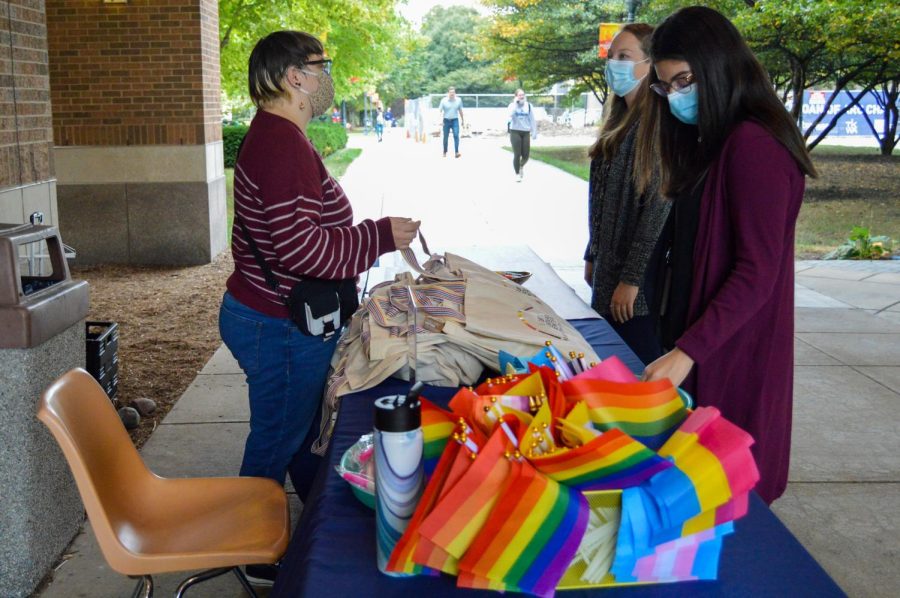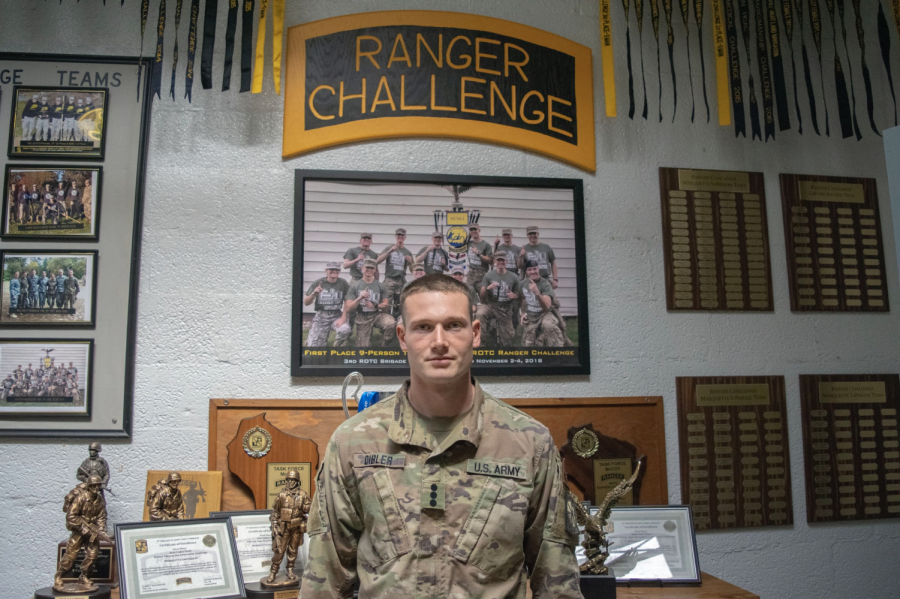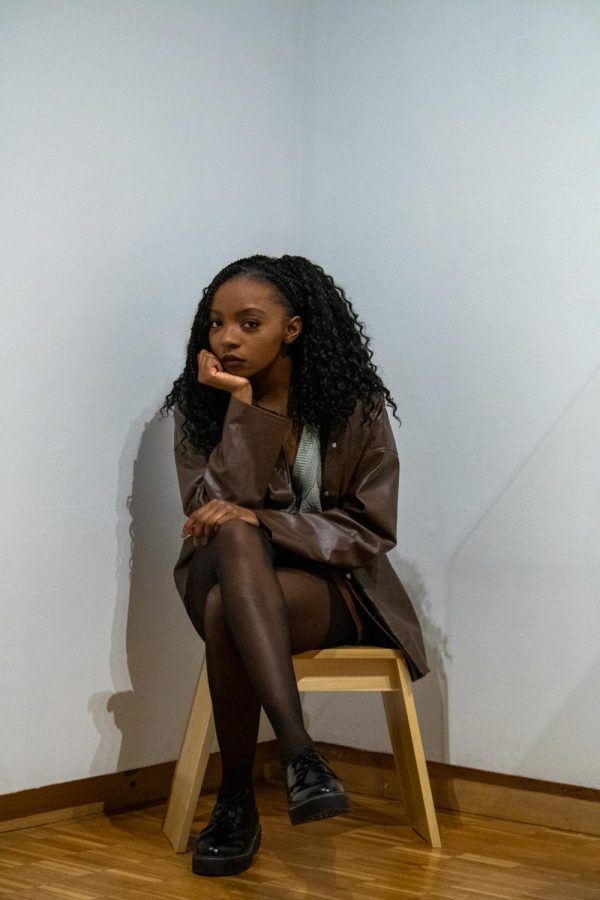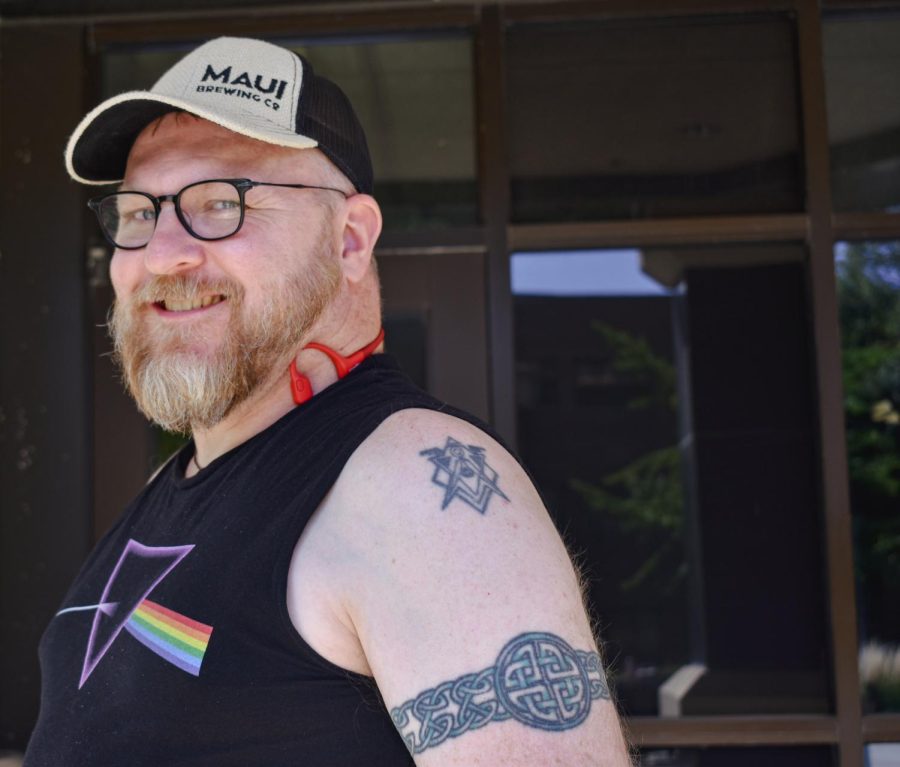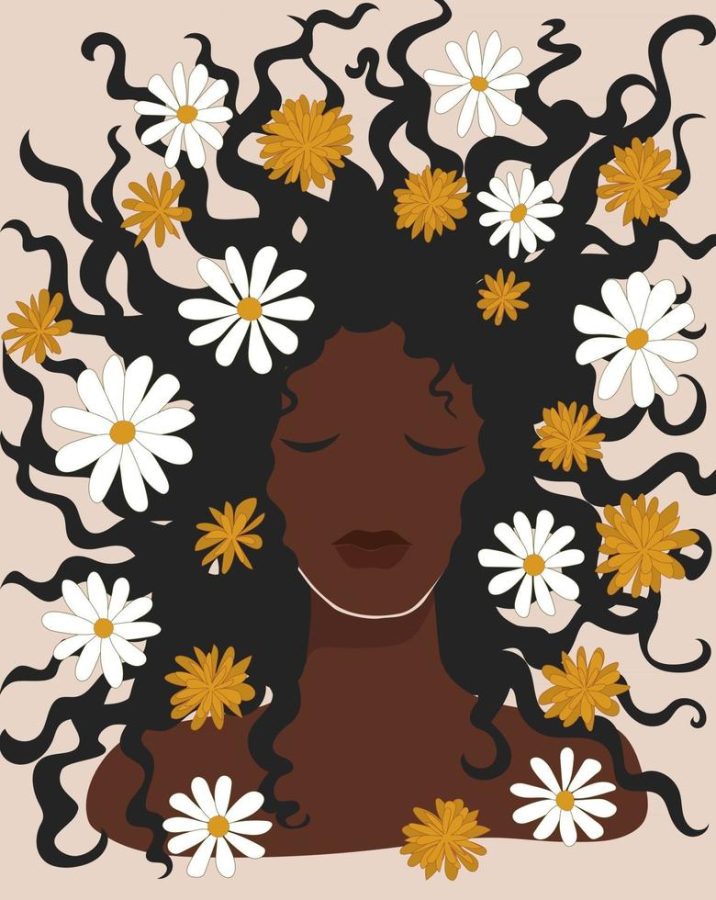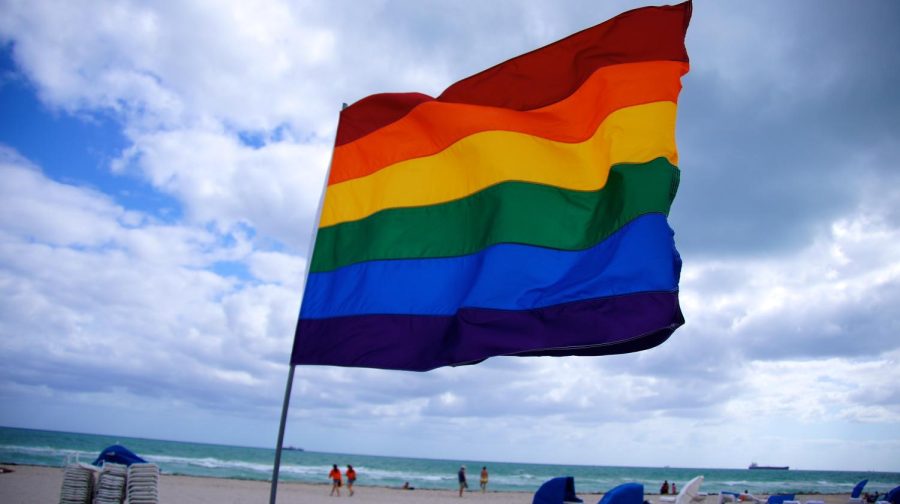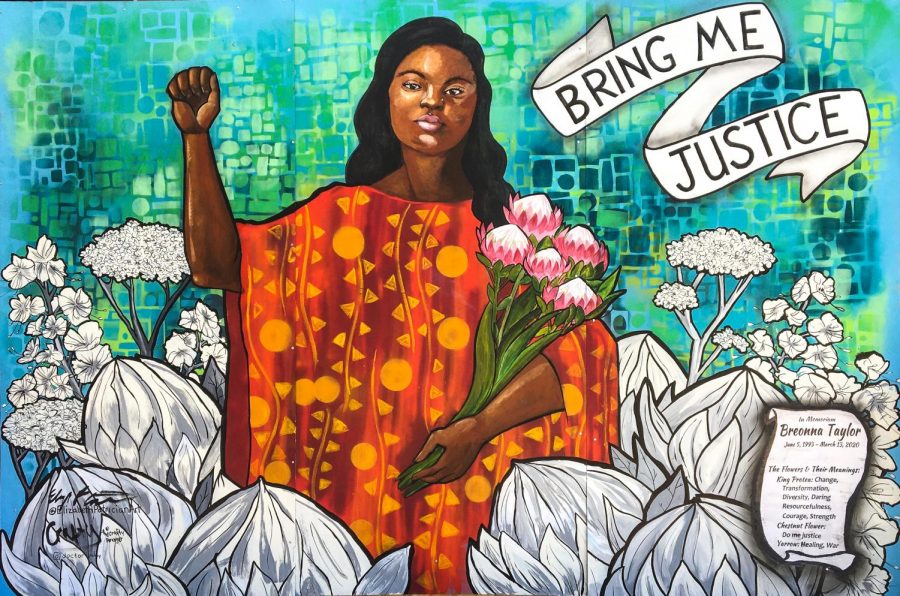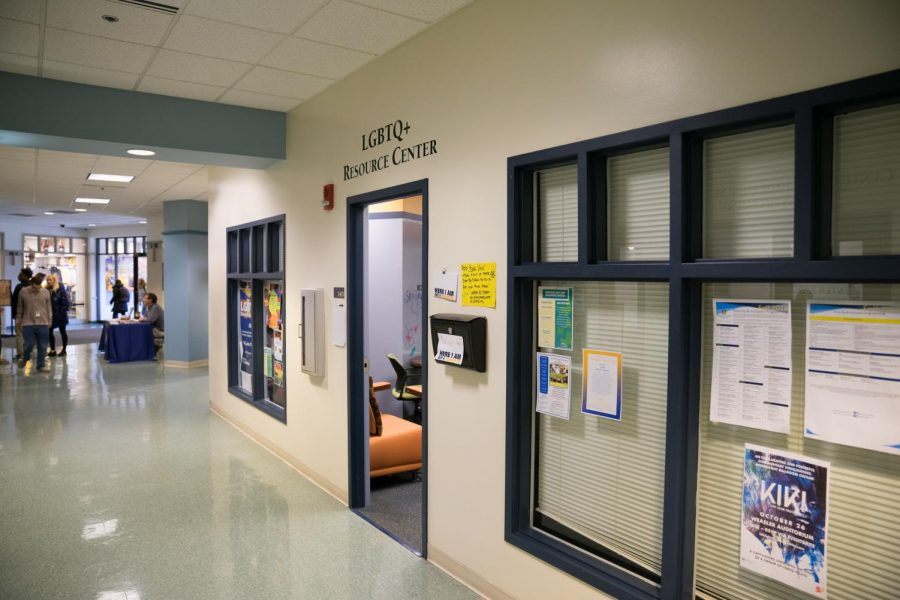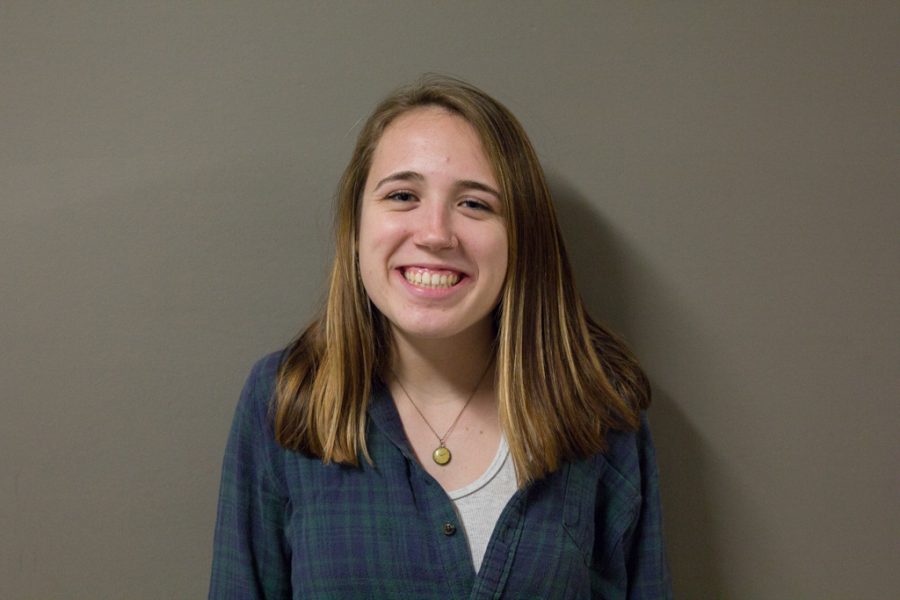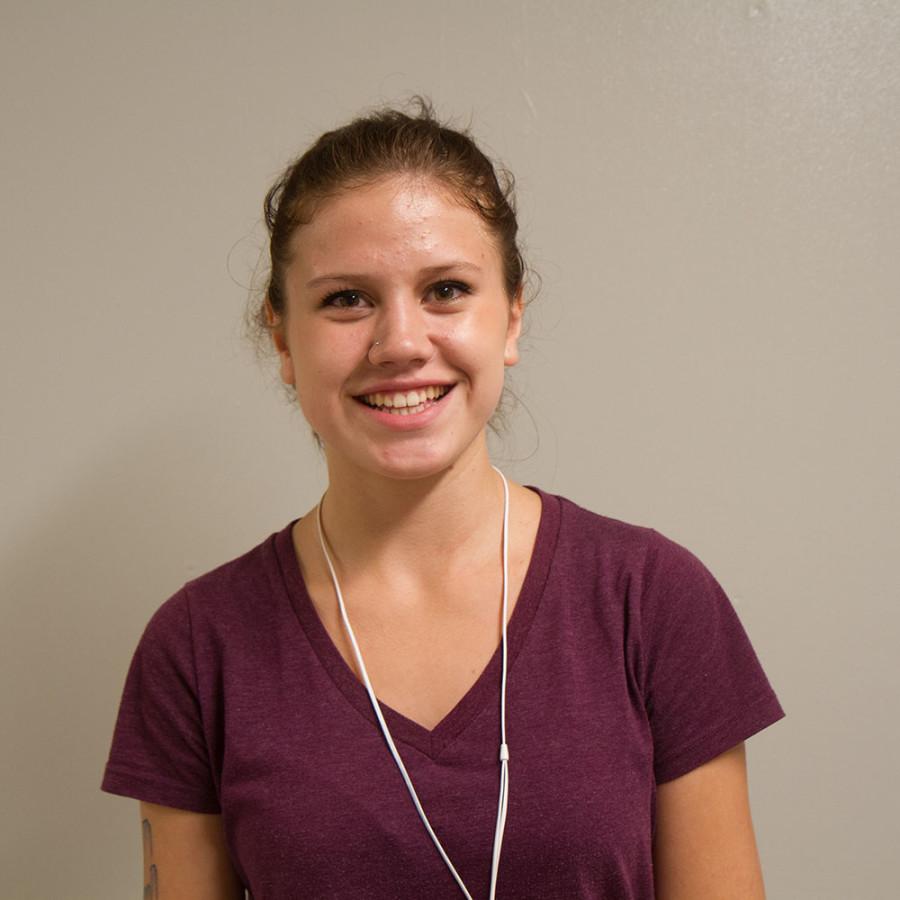ROYGBIV.
White, pink, turquoise, brown and black.
This rainbow flag still flies high in front of the Milwaukee County Courthouse, less than three blocks from Marquette University’s campus. Likewise, the LGBTQIA+ community (lesbian, gay, bisexual, transgender, queer, intersex, asexual and more) has been vocal and present. And yet, the community’s experience is still that of a minority’s — muffled when compared against the campus’s heteronormative noise.
“I would say (my experience) has definitely been interesting … Definitely not easy, for sure,” Jalen Fox, a senior in the College of Business Administration, says. “I am gay, but I don’t really like to put labels on it.”
To Fox, being gay is as innocuous a trait as being straight: It’s something that just is. But being different comes with assumptions that are oftentimes harmful and inaccurate. For example, the implicit assumption of a person’s sexual orientation, which is often taken for granted.
“Sexuality or being a part of the LGBT community isn’t something that’s black and white, you know? You never really know if a person is or isn’t, you know, a part of (the) community,” Fox says.
Fox goes on to say that a large part of his experience at Marquette comes from the his intersecting identities, between being both gay and Black.
“It’s like every day I have to think about the fact that my identity could, you know, put me in dangerous situations, just for being myself,” Fox says. “I sort of have an understanding that my experience is very different than other experiences.”
In addition to professional and classroom settings, Fox says intersectional identity plays into everyday things like walking down the street.
A multiplicity of other experiences fall under the rainbow. The goal of LGBTQIA+ activism is to highlight and validate these experiences.
“Sometimes you kind of use a stepping stone to really buy into your whole queer identity. That’s kind of what I experienced,” Maaz Ahmed, a senior in the College of Communication, says about their experience as a nonbinary person. They started by identifying as bisexual, then gay, then came into their complete identity. They use any/all pronouns.
“And I identify as gay, although that’s also in question, so who really knows?” Ahmed says.
Eleven percent of LGBTQIA+ adults identify as nonbinary, 1.2 million Americans, based on a study by the Williams Institute. Marquette does not seem to publicly display the amount of students who identify as LGBTQIA+, nor does it display specific demographics within the spectrum outside of male and female populations.
Indeed, uncertainty seems to still fill the air for some LGBTQIA+ folks on campus, a feeling fueled by past Marquette actions. Professor of social and cultural sciences Dawne Moon reflects on the Jodi O’Brien settlement in 2010 which contributed to the creation of the LGBTQIA+ Resource Center.
“Ten years ago when Jodi O’Brien was so horrifically mistreated by the university and I didn’t have tenure, it was somewhat terrifying to be here, but now my concerns are far more for students and staff than myself,” Moon says in an email.
She is referring to the 2010 rescinded offer of dean status to O’Brien. The New York Times has the story: “Marquette University abruptly rescinded an offer to a sociologist to serve as dean, angering some students and faculty members who said the university did so after learning she was a lesbian who wrote about sexuality. Marquette said the professor lacked ‘the ability to represent the Marquette mission and identity.’”
Reverend Robert A. Wild, Marquette’s then-president, told The New York Times that the decision had to do with O’Brien’s “negative” papers about marriage and the family. Yet many colleagues of O’Brien were dubious. Wild himself would later call the decision a “shortcoming,” but still stood by it.
“A mindset — a culture — not like a specific group of people,” Trisha Butz, a senior in the College of Engineering, says about Marquette’s atmosphere. Butz identifies as lesbian.
She is clear about not casting the blame on the straight majority. People are just not used to having openly LGBTQIA+ people around them and do not know how to act, she says.
“It’s less of ‘Oh, this specific group is always doing something,’ always discriminating something; and more so like, ‘Nobody knows how to treat me’ type of thing,” Butz says. “That’s what I’ve heard from others, I should say.”
Overt discrimination still happens, however, as Ahmed says, “On one hand, I’ve made some really great queer friends here.” But he feels like the queer population on campus is stratified. “There’s pockets of us in a bunch of different locations. But on the other hand, me and my roommate and some of our friends — we’ve been called slurs on the street late at night by Marquette students.”
Institutional inaction is something Kassie Povinelli, a senior in the College of Arts & Sciences, discusses in her experience as a transgender woman. When undergoing gender-affirming therapy, she asked if she could have a single dorm room. “And (the Residence Hall Association was) like, ‘No, we can’t do that for you,’” she says. “I think it was because they didn’t have any available at the time.” But whatever the reasons for this, she says, it is one of many examples the university did not make an effort to streamline her experience.
In contrast, Povinelli says her professors are very supportive and enact practices which affirm her identity, like privately asking preferred pronouns to avoid outing people.
“You can just say, I want to be called this name and (administration) will give you an email with that name. They’ll give you most of your Microsoft accounts updated with that name.” Povinelli says. “All your CheckMarq and stuff will be updated with that name. Just in general, anybody who interacts with you will see that.”
But Povinelli says there are further measures that the university could take to be gender inclusive. CheckMarq does not have the infrastructure for pronouns to be placed beside names — something Povinelli says she has requested for years. She says Marquette administration has claimed it is due to CheckMarq’s software being sourced from a third party.
Like Butz, Povinelli is very particular about who should be held accountable for these oversights. “Professors are great. But the administration really tries sliding the issue under the carpet.” Deadnaming — using a transgender person’s pre-transition name — and ease of updating identification are central issues for the transgender community.
Ultimately, Povinelli says, there are traditional homophobic dogmas which maintain Marquette’s passive stances. “Because they’re Catholic. I was raised Catholic and I went to Jesuit institutions and stuff. And the sort of hardline Catholic stance is ‘hate the sin, love the sinner,’ which really hates the sinner as well.”
Povinelli says this cognitive dissonance between the university’s stances leads them to dance around LGBTQIA+ issues. “It’s an important broad value, but then the specific value is still like, yeah, they can’t, they can’t overwrite themselves on it because of the Vatican,” she says.
These interconnecting forces craft the LGBTQIA+ experience on campus. Angel Gallegos Cuarenta, a first-year in the College of Arts & Sciences, says he feels an air of toxic masculinity: elements of hyper-masculine identity that harm social situations for all involved (including men). He feels this when he holds hands with his boyfriend in public. “We tend to let go when we go by a lot of guys.”
Fox talks about his dating experience, and by extension how he thinks a lot of LGBTQIA+ people navigate heteronormative spaces.
“And I think it’s still pretty hard trying to navigate that. It’s different from the straight, the heterosexual experience in that you’re able to just talk to the opposite sex and just be like, ‘Hey, I like you.’”
Fox says he feels a lot of LGBTQIA+ people need to build intimate relationships online through dating apps or social media. This has a substantial effect on dynamics, creating a chilling effect on relationships that preside over the community.
“People just still aren’t really comfortable being different,” Fox says. “I wonder how could we create a space for people that aren’t comfortable being out, or don’t have people to reach out to, to ask questions about their identity and stuff like that.”
Gallegos Cuarenta and Povinelli both emphasized their experiences must not be generalized to the whole LGBTQIA+ community.
To be LGBTQIA+ is a spectrum and everyone has their own place on that spectrum.
The LGBTQIA+ Resource Center is located on the first floor of the Alumni Memorial Union, and the Gender and Sexuality Alliance puts on pride-related events around campus. They can also be found on social media @lgbtqmu and @gsamarquette.
This story is part of a series.
Correction: A previous version of this story incorrectly implied that those who identify as non-binary are distinct from transgender individuals because they do not experience gender dysphoria.
This story was written by R.E. Hagan and Christina Espinoza. They can be reached at [email protected] and [email protected].

